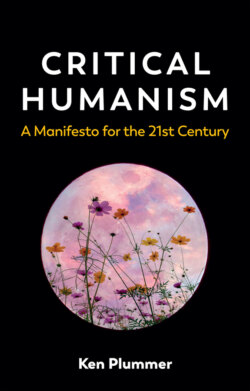Читать книгу Critical Humanism - Ken Plummer - Страница 9
Introduction
ОглавлениеWhat do we live for, if it is not to make life less difficult for each other?
George Eliot, Middlemarch (1871)
The year was 2007. I had been ‘born again’: a new human person, reconnected, full of life, energy and joy. I now had a new liver placed gently inside my body – donated by a seventeen-year-old girl, killed tragically in an accident. At any other time in history my life would have surely come to a fatal end. But in 2007, I was able to have a liver transplant. Over many years, I had developed chronic, fatal liver disease. The only way out now was full-blown transplant surgery. This saved my life. Recently invented, the transplant process brought together the altruism of the donor, the skills of the surgeon, the care of the nurses, the practical endeavours of hospital staff, the love of friends, partner and family, the intellectual brilliance of scientists – a full assemblage of humanity at work. Balancing on the edge of death for three and a half years and experiencing a successful transplant most surely wants to make you celebrate the wonders of being uniquely alive, connected to the world and being complexly human.1
And yet. Even as I was slowly being returned to my fragile wider planetary home, this very world looked like it could do with its own transplant! It was 2008: just seven years after the atrocity of the 9/11 New York twin tower slaughtering, we now had to face the enormous greed and corruption of the financial crash – casino capitalism – and its dishonest aftermath. Today as I write, in 2020, we confront a quite different order of crisis: a twenty-first-century plague, Covid-19, which has shaken everybody’s life and the very social structures in which we live.2 A new generational world experience is happening all around, like it or not.
Even as I recognize much of the extraordinary progress made in some parts of the world, I can also clearly see a world in woe, a much-mutilated humanity. We live in the chaotic flow of liquid modernity, a time of extraordinary volatility and change where life and the future have been rendered unsafe, insecure and at risk.3 The recent dominance of the West is now firmly in decline, and a new pluriversal world order is in the making.4 This is also an order with a tangible sense of the extreme harm we are doing to our environment. We build megacities of pollution in the middle of deserts. We cut down large swathes of forests all round the world, destroying both wildlife and the air we breathe. We elect leaders full of self-pride and little concern for global humanity. We fail to prepare ourselves adequately for a world in which a long line of anticipated catastrophes and disasters (the Anthropocene and the Precipice) is lining up for us. We tip endless muck into the oceans and rivers, so life cannot survive. We turn all of human sensitivity and life into a deluge of digital dehumanization. And wherever we look – if we do look – we can see a morass of inequality: the rich and their unqualified ‘greediness’ doing so much more damage than the poor, who are forced to suffer so much. The deep structural divides over men and women, different ethnicities and sexualities, and more, are embedded in deep levels of violence. An unbearable suffering stalks the world in many places. Myanmar’s generals preside over the brutal ethnic cleansing of the Rohingya population; Syria’s President al-Assad wages bloody war, bombing civilians and targeting hospitals; and in Yemen, the Saudi-led coalition has killed and wounded thousands of civilians, bringing an entire country to the brink of famine.
Here is our cruel world of winners who get more and losers who get less. A world where women continue to be downgraded. A world where the humanity of some groups who are ethnically, sexually or bodily different is denied. And despite years of accelerating warnings, a world in which many people live in full-blown and much-celebrated, irresponsible, cruel and violent ignorance. We dwell in what might be called anti-humanity: a deep disconnection from being human as we engage in mass dehumanization, mass expulsions, mass digitalism and mass extinctions. Much of the pluriversal world lives in deep ignorance of the complexity (and often the suffering) of the rest of the world. And everywhere, Covid-19 has not made living any easier. So many people suffer; so many have been seriously let down by the human world in which they live.
